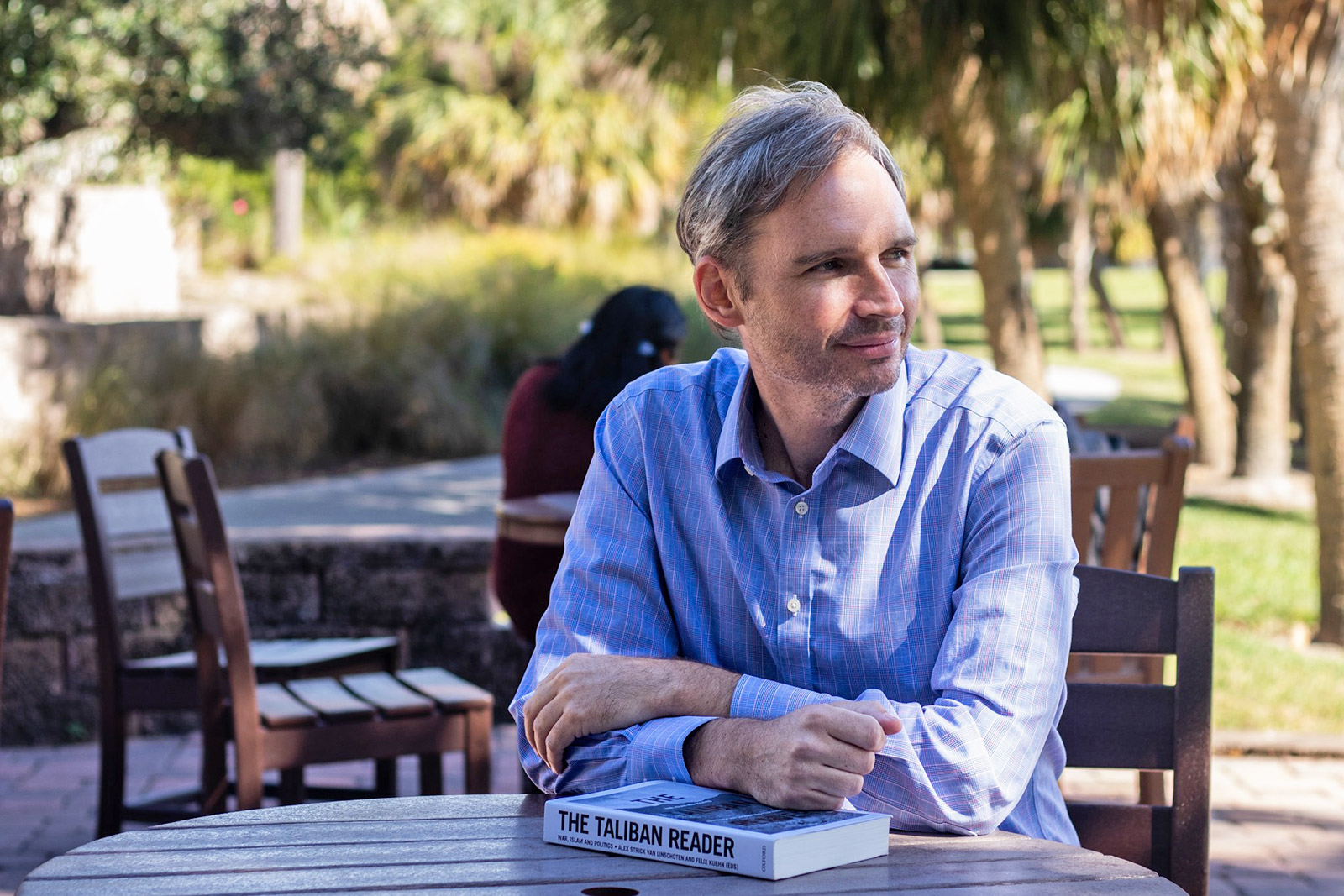“Afghanistan is now among the world’s worst humanitarian crises, if not the worst,” David Beasley, executive director of the United Nations World Food Programme, told the BBC recently. The U.N. estimates more than half of Afghanistan’s 23 million people face acute food insecurity, and more than a million children could die of malnutrition.
The United States invaded Afghanistan in 2001, following the terror attacks on Sept. 11 and the Taliban’s refusal to extradite Osama bin Laden, the mastermind of the attacks. On August 30, 2021, after more than 22,000 American service members had been killed or wounded, the U.S. staged its final withdrawal from Afghanistan, ending the longest war in American history.
The troops are gone, but critical questions remain. Who will run the country? What happens to the Afghan people? Will the humanitarian crisis, which includes recent reports of families selling their children in order to obtain food, get even worse?
Michael Burch, Ph.D., associate professor of political science at Eckerd College, has lived and done research in the Middle East, Turkey, Ghana and East Africa. Among the courses he teaches are The Syrian Civil War and The Globalization of Crime. “My research focuses on understanding why people use violence to achieve their political goals,” he says, “and the impact of that decision on communities in both civil war and post–civil war landscapes.”
At the center of the crisis in Afghanistan, he says, is the Taliban, the Islamic fundamentalist organization that claims to be the country’s legitimate government.
“It seems like the Taliban controls most of the country,” Burch says. “But will the Taliban be the government of Afghanistan, or an international pariah? It’s still a country suffering from 45 years of war. There are so many health, education and infrastructure issues in the country.
“There is not an effective organized resistance against the Taliban,” he adds. “But there is a food crisis going on in the country, and it’s going to be a very difficult couple of years. A lot of Afghanistan still depends on the U.S. and other actors.”
But will the U.S. and other countries step up? Will a massive relief effort materialize? “To truly rebuild the country will take years and a lot of people and resources,” Burch says, “and the U.S. never truly committed to that. And that was reflected in how quickly things fell apart this year.”
Burch says his fear is that the crisis in Afghanistan will cease to be a front-burner issue. “The U.S. never truly cared about Afghanistan,” he says. “It was never the focus. Afghanistan is a country that has experienced conflict for so long. We [Americans] have a sense of obligation but no real commitment to do anything.”
When it comes to comparing our war with Afghanistan to our war with Vietnam, which lasted almost as long and also ended with a chaotic American withdrawal, Burch sees at least one additional parallel. “I don’t think in either case,” he says, “the government explained to the American people what the goals should be.”
A stark difference between the two wars, Burch argues, and a possible reason why there is indifference to the plight of the Afghan people, is the Sept. 11 attacks. “That was done by foreigners based in Afghanistan,” he says. And that fact could adversely affect efforts to help the country now. “When there’s no empathy,” he adds, “or it becomes easy to demonize the other side, anything can happen.
“We pulled out of Afghanistan, but the United States military is still in Germany, Japan and South Korea. And we’re still in Kosovo because no one knows we’re in Kosovo.”
Any easing of the Afghanistan crisis would involve a sustained, multinational relief effort, Burch says. It would also involve keeping the crisis in the headlines. “That’s done by news organizations, and right now in the U.S. there’s a lack of foreign news bureaus. There needs to be more reporting about what’s going on, and not just by journalists but also by the people who have studied and understand the complexity of the current situation.
“I think the ultimate outcome will be a lot of suffering in Afghanistan in the immediate future as the international community continues to be paralyzed regarding how to interact with the Taliban.”













